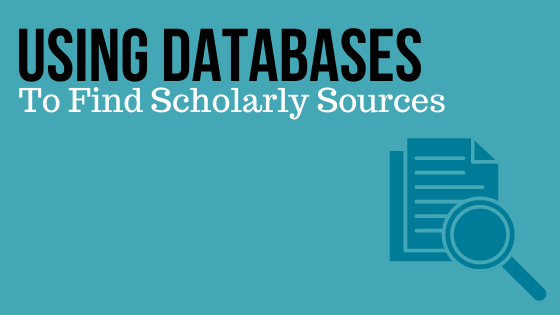Today’s guest blog was written in collaboration with Melissa Martin, a former global marketing intern with Promega. She is a senior at the University of Wisconsin-Madison where she is double majoring in zoology and life sciences communication, with a certificate in environmental studies. Reposted from the Promega Connections blog with permission.
Peer-reviewed papers are considered the most technical and in-depth way to learn about research and scientific advances. As a student or scientist, you will not only want to read scholarly articles to learn about what others are doing in your field but also to expand your knowledge and learn about scientific advances in completely new areas of study. With countless disciplines of science covering wide-ranging topics such as cell biology, physical chemistry or human behavior, it can be overwhelming to do a general search and find articles and journals that will have the topics relevant to your interests.
Databases can be a helpful tool to start exploring the large number of publications and learn from other scientists. They can also be useful for finding references for your own papers to explain and strengthen your findings in the introduction or discussion sections or find techniques that didn’t work for other scientists so that you can avoid similar mistakes while setting up your own experiments.
Here are some reliable databases to explore publications, along with lists of pros and cons for each. Make sure to check if your university or employer provides a subscription to any databases, so you don’t have to pass over an article you are dying to read because you must pay to see the full text. When possible, it is also helpful to filter your search to show only the abstract. Reading the abstract is the best way to find out what a paper is going to be about and whether it is an article you are interested in and want to look at the full text.
Google Scholar
- Pros: Great starting point, recommends phrases to search, relevance and date filters
- Cons: Very broad—may miss important articles, will search key words separately unless quotations are used (ex: “cell viability assay”), can’t search by discipline
Web of Science
- Pros: Many different academic disciplines, can insert multiple keywords, “Highly cited” or type of discipline filters
- Cons: Requires a subscription to access articles
Research Gate
- Pros: Recommended publications get sent to your e-mail, can “follow” scientists you enjoy, easy to bookmark favorites
- Cons: May be difficult to search for specific articles, must wait for e-mails with recommendations, may receive unwanted e-mails
PubMed
- Pros: Life sciences and biomedical database, includes images in the search, advanced filter options such as free full text results, can display abstract in search results, includes related articles
- Cons: Searches abstract but not full text for keywords (not great for very specific searches, like materials used)
Science Direct
- Pros: Large database of scientific and medical publications, separated by discipline—easy to explore, easy to view figures and related articles
- Cons: Being a member offers you more resources, must purchase articles unless part of an institution
Scopus
- Pros: Largest abstract and citation database of peer-reviewed literature, covers numerous fields including science, technology, medicine, social sciences, arts and humanities, features citation tracking
- Cons: Full access only granted if part of subscribing institution
Directory of Open Access Journals (DOAJ)
- Pros: All content available for free, covers areas of science, technology, medicine, social sciences and humanities, grades quality of journals
- Cons: Full text not searchable, limited to open access journals
While it can be difficult to read and understand long, technical peer-reviewed papers, it is a skill that scientists will need to use throughout their career. Exploring these databases may be insightful or inspiring to your own work, which is why it is important that you feel prepared to search through the thousands of publications out there and find what you’re looking for.
WOULD YOU LIKE TO SEE MORE ARTICLES LIKE THIS? SUBSCRIBE TO THE ISHI BLOG BELOW!
SUBSCRIBE NOW!


